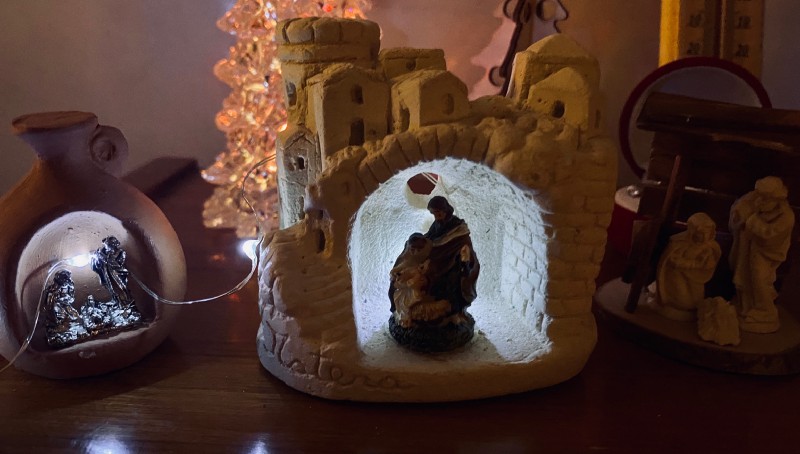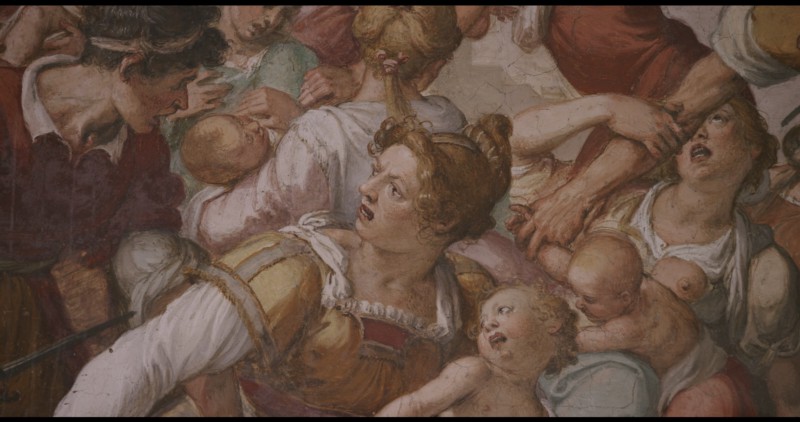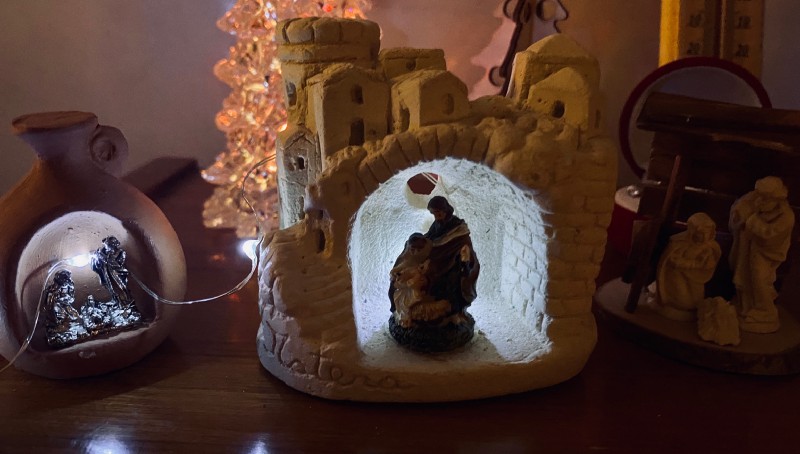
Christmas 2020
At the heart of the Christmas story is a child born into poverty, in an unconsidered place, to ordinary people who made extraordinary choices. This is the origin of the story, the essence of the season.
How can you hate that?
I can understand not liking commercialism. I understand what people have done in the name of religion (the politics of religion and power) and the disdain for the structures that grew around a breakaway faith that expanded to be a global force — filled with successes, failures, obscenities and contradictions.
But we come to this day every year with the spirit of birth and the arrival of a child.
So many parallels are to be drawn this year around the whole story. It started with a census and a decree (in Italy it seems we have had one decree per week this past year) inviting all people to be counted.
A man sets off on a journey with his pregnant wife to have himself and his family counted and considered as citizens, as people in a society. They leave from Nazareth — a place of no particular — nothing any good had ever come from there, that is how it was viewed at the time.
They have no means and birth their first child in poverty among animals. This is the very essence of innocence. The dependency with which we are all born into the world and every single one of us has one thing in common with this child, with Jesus.
To get here we grew and came through the body of a woman, that is the very humanity and humanness we share with baby Jesus and this woman, his mother, who said “yes” to carrying and birthing this child.
My recent documentary film is the story of the Innocents of Florence , an orphanage and hospice that sought to save over 600,000 children born into similar conditions as Chirst’s and worse in Florence begining 1419. It helps us reflect on the very humanity of birth, of new life and all we have done through centuries to preserve it.

The Innocenti Institute in Florence was named after the slaughter of the Innocents, when King Herod ordered every child under the age of two killed in an effort to eliminate the “future king” who had been born that day in Bethlehem.
The Institute was formed as a lay organization in service to abandoned children. It wasn’t about Christianity, but it was about humanity and preserving the innocents; newborn children who were helpless and unable to care for themselves.
Rigid Christianity, ironically was an impetus for the Institute because children born of women out of wedlock were not cared for in the Christian hospital. Of course I don’t believe that would happen today but it’s another example of misinterpreted religious teaching mixed with societal morality creating unintended problems. Thankfully, Florentines recognized this and creating a loving and accepting situation and place for those who would have been cast away.
This year, with the world situation, with so many reflecting on life, their own life and life in the balance, the Nativity story becomes again a relevant and an in-the-moment historical event.
Our humanity reminds us to care for one another in the fragility of a birth and the early days, building the strength to grow and to explore the fullness our lives as human beings.
The birth of Jesus is celebrated each and every year as “renaissance”, the rebirth and renewal of our lives, the reminder of the significance of family, of a coming together of community and humanity to celebrate and nurture the potential of every human being.
As we go into 2021 we can look back on this past year, but let’s also be reminded of the miracle of every birth and the possibility at the start of every new life and new beginning that the Nativity scene presents us.
Merry Christmas
2020, Firenze
